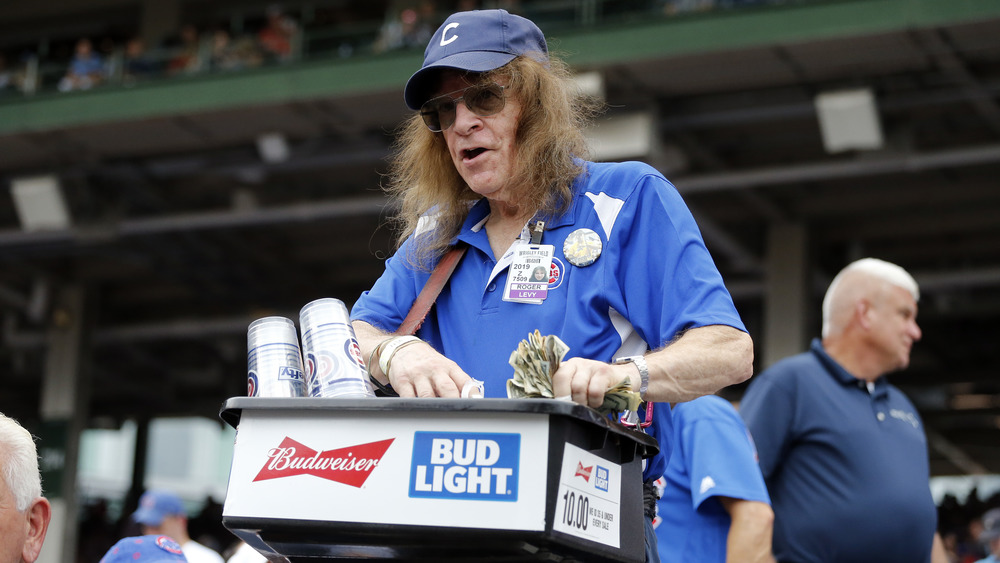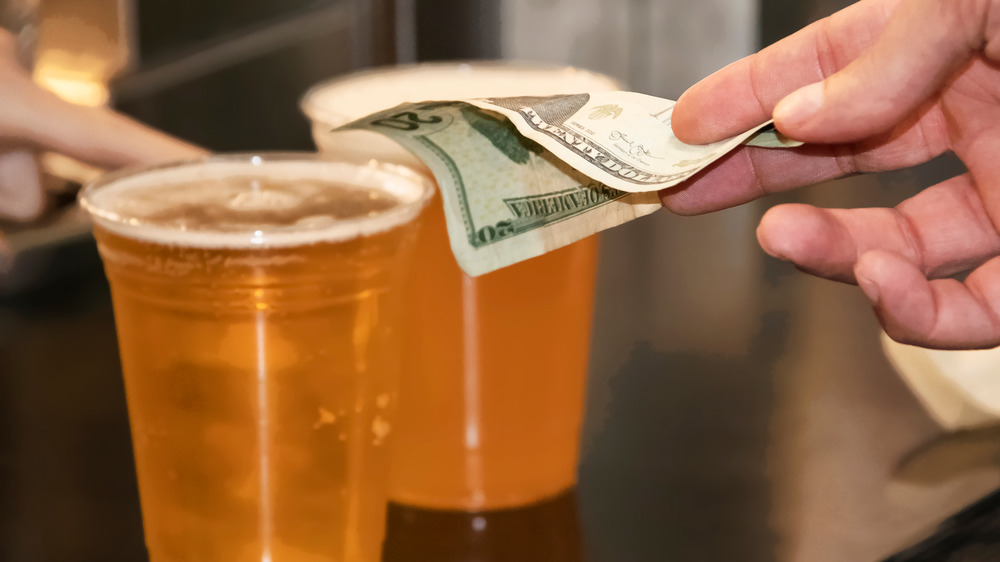Here's How Much Sports Stadium Beer Vendors Really Make
Few things are a more perfect match than the thrill of live sports and the refreshment of an ice-cold beer. Scoring your favorite brew from your seat while you cheer for your team is all part of the game-going experience that so many Americans love. According to the U.S. Travel Association, over 150 million people attended matches across the five major sports leagues (MLB, NBA, NHL, NFL, and MLS) in 2018, and CNBC reported that Americans spent $56 billion to watch games in person in 2017. What does this mean for the people getting that beer into fans' hands? The behind-the-scenes details and earnings of ballpark beer vendors feel especially important to consider in the midst of COVID-19 when games are either held for limited-capacity crowds or canceled altogether.
In 2005, Slate pulled back the curtain on beer-selling at sporting events. The job is physically taxing, considering it requires lugging cases of beer around the stadium. It also requires certain education and certification: not only do beer vendors of course have to be 21 or over, but they also go through training on areas like how to spot and handle intoxicated fans. When Thrillist shadowed a seller at Chicago's Wrigley Field in 2015, readers learned vendors must take care not to injure themselves, as they don't get disability benefits. There are perks, though. In addition to getting to experience the games, vendors sometimes have their own fans, regular ticket holders who love to see their go-to sellers and tip accordingly.
Here's what factors into beer vendors' earnings
According to Sports Illustrated, beer vendors are independent contractors. Barring an event like this pandemic calling the shots, vendors have a hand in how much they earn based on how many games they work. Some vendors sell part-time, only vending at the home games of one team. They can earn roughly $10,000 to $15,000. Others travel to work different events all year round, making it a full-time occupation. They can earn from $75,000 to $100,000.
As Thrillist revealed, seniority also plays a role. More experienced workers get first dibs on what they sell, as well as what part of the stadium they sell it in unless the venue's sales manager organizes this. Up to 120 workers might be selling at any given game, and the ones doing it longest get to sell the best items from the priciest brands, translating to bigger commissions and better tips.
The games, themselves, tip the scales, too. At day games, vendors can sell through the eighth inning as opposed to the seventh at night games. Good weather bodes well for sales, as does excitement, from team rivalries to neck-and-neck scores. Slate writes that even the kind of sport weighs in: football fans buy more beer than baseball fans.
The main takeaway for this year is that beer vendors' livelihoods depend on being able to sell to as many fans as possible at as many games as possible. Especially until game schedules can resume normalcy and fill the stands, fans can show their appreciation through tips.

